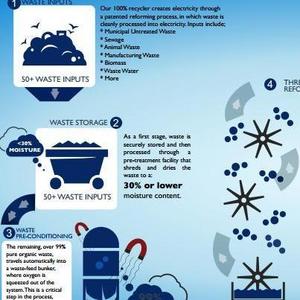Lockheed Martin, Concord Blue to deploy waste gasification




PHOTO: CONCORD BLUE
October 10, 2013
BY Anna Simet
Advertisement
Advertisement
Related Stories
Clean Energy Technologies Inc. on Oct. 16 announced the Vermont PUC is reviewing a permit application for a proposed 2.2 MW project will use pyrolysis and gasification technologies to convert biomass into renewable synthetic gas for clean combustion.
Renewable are expected to account for 24% of U.S. electricity generation in 2025, increasing to 26% in 2026, according to the U.S. Energy Information Administration’s latest Short-Term Energy Outlook, released Oct. 7.
Drax and NGIS launch new partnership to map carbon stocks of Drax’s North American biomass sourcing areas
Drax, the renewable energy business, is partnering with NGIS, a global leader in geospatial technology, to model and monitor the carbon stocks of the U.S. and Canadian forests that Drax sources its sustainable biomass from.
Japan-based Renova Inc. on Sept. 30 announced its 49.9 megawatt (MW) Karatsu Biomass Power Plant commenced operations on Sept. 27. The facility is fueled with wood pellets and palm kernel shells (PKS).
Blending biomass with coal isn’t technically possible—it’s a craft.





